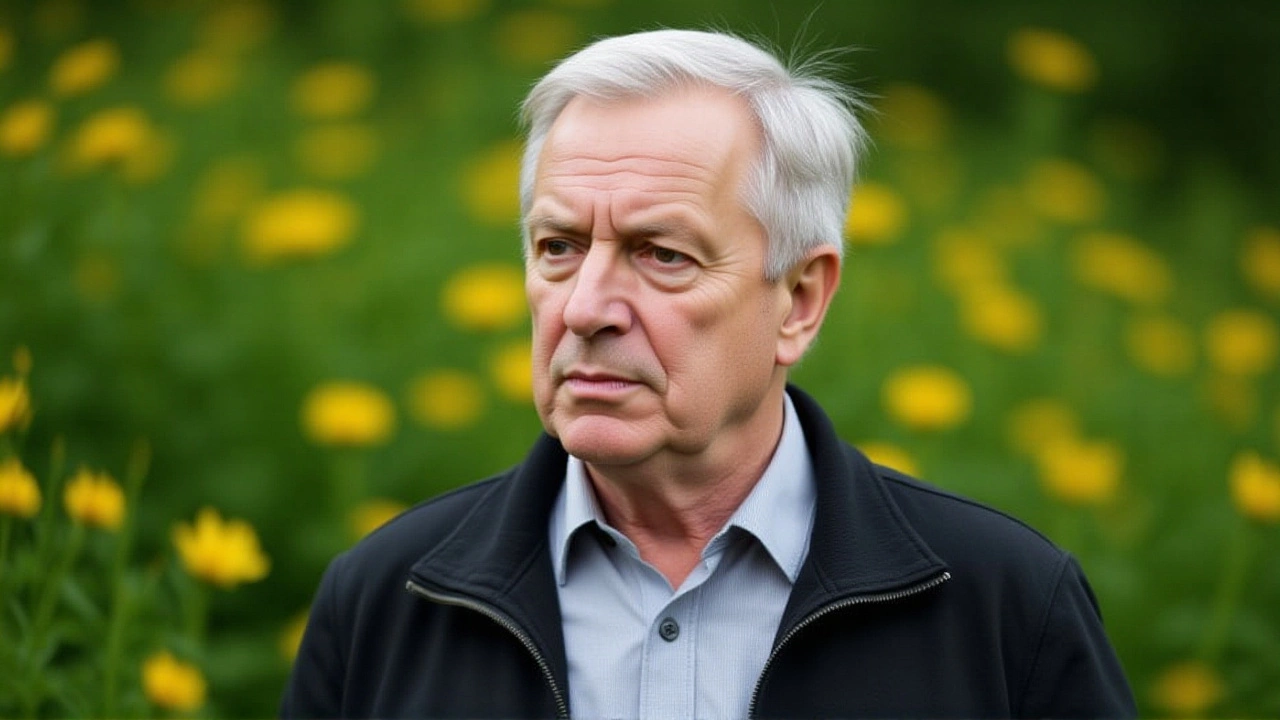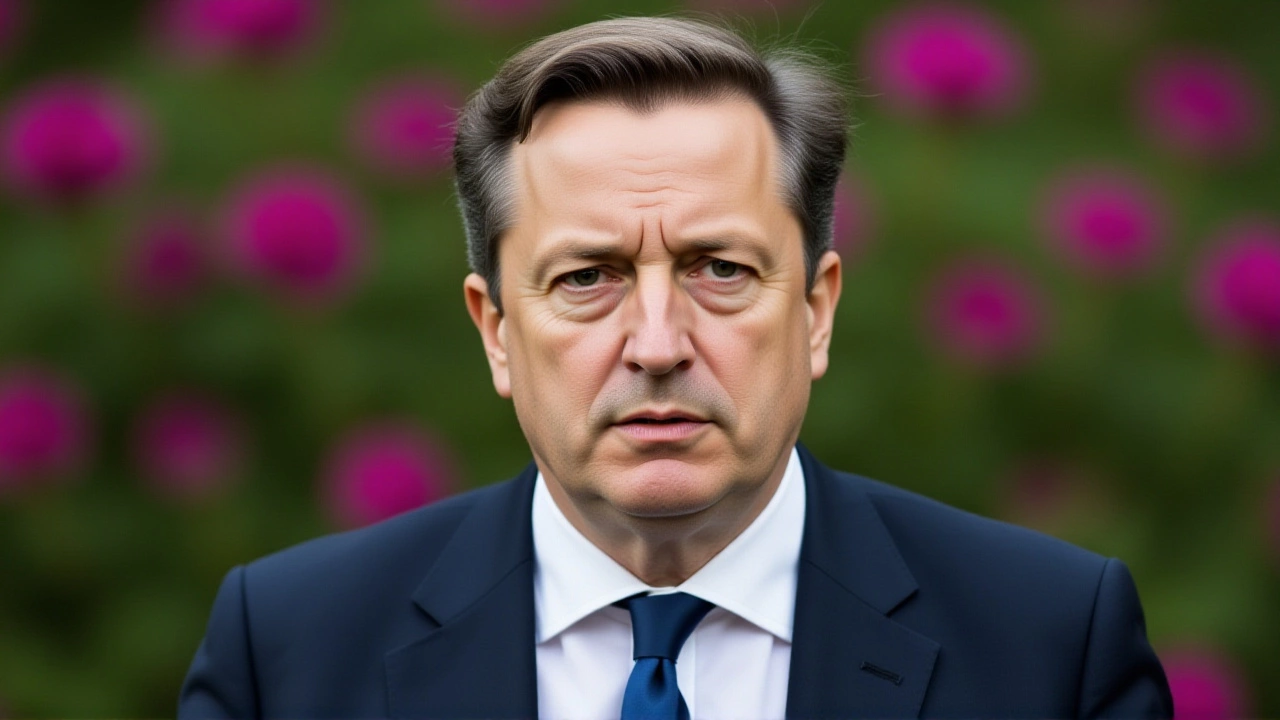When David Cameron walked into his GP’s office in early 2024, he didn’t think he was walking into a life-altering moment. He had no pain. No urinary issues. No warning signs. Just a quiet nudge from his wife, Samantha Cameron, after hearing radio host Nick Jones describe how a simple blood test saved his life. That conversation changed everything. By June 2025, Cameron was cancer-free — and now he’s using his platform to demand change across the NHS.
A Diagnosis Without Symptoms
Cameron, 59, was diagnosed with prostate cancer in 2024 after a routine PSA (prostate-specific antigen) test picked up elevated protein levels. He had never requested the test before. In fact, the NHS doesn’t offer it as part of its national screening program — not because it’s ineffective, but because it’s imperfect. False positives are common. Some slow-growing tumors never become dangerous. But as Cameron discovered, the alternative — waiting for symptoms — is far riskier. "I had zero symptoms," he told The Times in an exclusive interview published November 23, 2025. "That’s the terrifying thing. This isn’t a disease that announces itself. It just… shows up. And if you’re not looking, you miss it." His diagnosis was confirmed with an MRI and biopsy. He opted for focal therapy — a minimally invasive treatment using precisely targeted electric pulses to destroy cancerous tissue while sparing surrounding nerves. Unlike full prostate removal, this approach carries a lower risk of incontinence or impotence. A follow-up scan in June 2025 showed no trace of cancer. "It was a pretty simple operation," he said. "No hospital stay. No major recovery. Just a scan, a few hours, and I was back home."Why This Matters — And Who’s Left Behind
Cameron’s story isn’t unique. But his voice is powerful. Prostate cancer is the most common cancer among men in the UK, with over 52,000 new cases diagnosed each year. Black men are more than twice as likely to develop it compared to white men. Men with a family history face a 2.5 times higher risk. And yet, the UK National Screening Committee has held off on nationwide screening since 2013, citing concerns over overdiagnosis and overtreatment. But the tide is turning. The Telegraph has led a years-long campaign pushing for targeted screening — not for every man over 50, but for those at highest risk. Cameron’s revelation adds urgent weight to that call. "You’d struggle to find a doctor in the land who wouldn’t agree that we absolutely 100% need a screening program for prostate cancer," he said. "It’s not about fear. It’s about fairness. Why should a Black man or someone with a father who died of this cancer have to wait until he’s in pain to get tested?"The Science Behind the Push
The debate isn’t about whether PSA tests work — they do. It’s about how to use them wisely. A 2022 study from University College London found that targeted screening reduced prostate cancer deaths by 40% in high-risk groups without significantly increasing unnecessary treatments. MRI scans, now routinely used after elevated PSA results, have cut down false positives by nearly half. Focal therapy, which Cameron underwent, is now available at over 30 NHS hospitals — but only if you know to ask for it. The problem? Most men don’t. A 2024 YouGov poll showed only 31% of men over 50 had ever requested a PSA test. Among Black men — the group with the highest risk — the number was just 22%. "It’s not ignorance," said Dr. Amina Patel, a urologist at King’s College Hospital. "It’s silence. We’ve failed to communicate the stakes. Men are told, ‘It’s optional.’ But when you’re at risk, it’s not optional. It’s survival."
What Happens Next?
The UK National Screening Committee is expected to release its final recommendations on prostate cancer screening in late November 2025. Ministerial decisions will follow within weeks. Cameron’s public disclosure isn’t just personal — it’s strategic. He’s betting his credibility on the idea that policy can change when people speak up. "I had a scan. It helped me discover something that was wrong," he said. "It gave me the chance to deal with it. I would feel bad if I didn’t come forward and say that." His wife, Samantha, didn’t just encourage him to get tested — she gave him the language to fight for others. "You’re going for a health check-up with your GP, you should ask about this," she told him. Now, he’s asking the entire country to do the same.Behind the Numbers
- Prostate cancer accounts for 27% of all new male cancer cases in the UK (Cancer Research UK, 2024) - Black men have a 1 in 4 lifetime risk of developing prostate cancer — double that of white men - Only 1 in 3 men over 50 have ever requested a PSA test - Focal therapy success rates for localized cancer exceed 90% at five years - The NHS currently spends £280 million annually treating late-stage prostate cancer — a cost that could drop by 40% with early detection
What’s Missing in the NHS?
While the U.S. and parts of Europe offer PSA testing to men over 50 with shared decision-making tools, the UK still treats it as a private option. Men can request it — but GPs often don’t raise it. No national campaign. No patient leaflets. No reminders. "It’s like asking for a smoke alarm in a house that’s already on fire," said Dr. Rajiv Singh, a public health researcher at the London School of Hygiene & Tropical Medicine. "We’re waiting for the smoke before we install the alarm." Cameron’s advocacy may finally force that alarm into every GP’s toolkit.Frequently Asked Questions
Who is most at risk for prostate cancer in the UK?
Black men are twice as likely to develop prostate cancer as white men, and those with a first-degree relative (father or brother) diagnosed before age 60 face a 2.5 times higher risk. Men with BRCA1 or BRCA2 gene mutations are also at elevated risk. Obesity further increases the likelihood of aggressive forms. These groups are the primary focus of proposed targeted screening programs.
Why doesn’t the NHS screen all men for prostate cancer?
The NHS has historically avoided universal screening due to concerns about overdiagnosis — detecting slow-growing cancers that may never cause harm — leading to unnecessary treatments and side effects. However, newer evidence shows targeted screening for high-risk groups reduces deaths without the same risks. The UK National Screening Committee is now reconsidering this stance, with final recommendations due in late November 2025.
What is focal therapy, and how does it differ from surgery?
Focal therapy uses highly focused electric pulses or ultrasound to destroy only the cancerous portion of the prostate, sparing surrounding nerves and tissue. Unlike radical prostatectomy — which removes the entire gland — it carries lower risks of incontinence and erectile dysfunction. Success rates exceed 90% for localized cancer, and recovery is typically under a week. It’s now available at over 30 NHS hospitals but remains underused due to lack of awareness.
Can prostate cancer be detected without a PSA test?
Yes — through digital rectal exams (DRE) or MRI scans — but these are less sensitive for early detection. PSA tests detect biochemical changes before physical symptoms appear. While not perfect, combining PSA with MRI reduces false positives significantly. For high-risk men, PSA remains the most reliable early warning tool available, especially when paired with genetic risk assessment.
How is David Cameron’s case different from other public figures who’ve spoken out?
Cameron’s influence comes from his political stature and timing. He’s not just sharing a personal story — he’s directly challenging policy inertia. His call for targeted screening aligns with emerging medical consensus and coincides with the NHS’s final review of screening guidelines. His advocacy could tip the scales toward implementation, something previous campaigners — including actors and athletes — haven’t been able to achieve.
What should men do right now if they’re concerned about prostate cancer?
Men over 50 — especially Black men or those with a family history — should ask their GP for a PSA test during their next check-up. Don’t wait for symptoms. Bring up the topic directly. Ask for an MRI if PSA levels are elevated. Resources are available through Prostate Cancer UK and the NHS website. Early detection saves lives — and it’s as simple as a blood test.




Write a comment